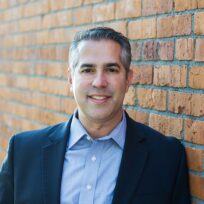Financial Planning for Medical Professionals: Where to Go for Help
Make sure to pick a financial planning strategy that aligns with your personality, goals, and financial literacy

This article is the second in a four-part series exploring the unique financial planning needs of medical professionals. We are publishing one article each week through November 2.
The first step in improving any financial situation is to take stock of where you are and think about the financial goals you have for yourself five, ten, 20, and 40 years down the road.
Now that you have a good sense of the specific planning areas to focus on, the next step is determining what options exist to help you get from point A to point B. Much like any financial advice, different solutions work best for different people depending on lifestyle, personal interests, and goals.
If you’re a business-minded person who hopes to run your own private practice someday, perhaps the challenge of creating a well-balanced, goal-oriented financial portfolio is thrilling to you. If you have a family or a busy personal life, or simply don’t care about analyzing risk, returns, and numbers in each of your many bank accounts, outsourcing your financial strategy to an experienced personal advisor might be the best choice for you.
Below are a handful of options that can help you build and execute a sound financial plan. When selecting which wealth management strategy works best for you, remember to take into account your personality, consider the complexity and ambition of your goals, and be honest about your financial literacy.
Do-It-Yourself
Independent, challenge-oriented doctors may find joy in the task of managing their assets alone. The benefits of this option include being able to buy and sell stocks yourself and adjust or tweak your savings and retirement contributions month-to-month.
However, it’s important to recognize your discipline when it comes to spending, saving, and investment tracking. Doctors shouldn’t feel pressured to manage wealth by themselves. Strategic activities like following a workout plan or renovating a home are great to perform alone if you have the necessary skill set. Still, it’s always helpful to have a partner to talk to for advice.
Financial planning for medical professionals isn’t easy, and although it may feel like your years of schooling should equip you with the skills needed to manage your money, this is rarely the case. There’s a reason some financial advisors are trained to manage the wealth of doctors specifically; physicians’ lives and careers are complicated enough without the added weight of debt and investment management. OpenPlan, powered by Brighton Jones, provides a do-it-yourself approach with a flat fee and in conjunction with expert certified financial planners.
Robo-Advisors
Digital financial advisors have long claimed to be a sweet spot between self-managed wealth and a full-time fiduciary in terms of both assistance and cost. Digital wealth management is undoubtedly easier than ever, and doctors have a handful of well-respected platforms, like Betterment and Motif, to choose from. Most of these platforms also have apps that allow for easy, immediate adjustments to one’s investment strategy. Medical professionals interested in taking some control of their finances but don’t have the time to read up on the latest economic strategy advice might find success with a robo-advisor.
This is where a robust analysis of goals and outcomes needs to come into the picture. A major component of financial advising that robo-advisors lack is the ability to tailor a plan to an individual physician. Because of the lack of face-to-face interaction and the one-size-fits-all methodology of these wealth management platforms—especially combined with physicians’ position as high-net-worth, high-income individuals—finding a robo-advisor that adequately encompasses all of your needs can be a challenge.
Multiple Advisors for Different Needs
If you know that your goals are ambitious, complex, and perhaps subject to change, multiple advisors are a great way to place your wealth in the hands of trusted experts, all of whom have unique expertise.
The pros of this option include the ability to crowdsource advice from all your advisors, as well as access to a variety of tailored experts, each tasked with achieving one of your financial goals. The cons of having multiple advisors include a lack of one cohesive strategy to achieve all your goals (and instead, having multiple separate goals, each working independently) and high costs. Paying for separate financial advisors might not be worth it if you can find an expert who can address your goals with one overarching strategy covering your entire financial picture.
Brokers
In addition to managing your stock portfolio, full-service brokers try to offer medical professionals who open accounts with them as many financial services as possible. When selected correctly, a full-service broker will make investment decisions on your behalf that best align with your goals and offer you financial advice when you need it. Discount brokers cost less, but they are also limited to simply buying and selling stocks.
As you consider working with a full-service broker for their financial strategy, keep in mind that brokers are still trying to make a sale and earn a commission and can lead you astray if you don’t articulate your goals clearly. Because brokers can be costly by themselves, it’s important to get a sense of whether they have your best interest in mind, or if they are looking to simply make as much as they can by buying and selling stocks with your money.
After comparing all your wealth management options with your current financial situation and vision for the future, do your research into each specific option you’re considering. Find a digital advisor specializing in your goals, locate a handful of advisors that specialize in each of your financial priorities, or start digging into how you’ll manage your wealth by yourself.
The next article in our series will discuss why it’s so critical to work with a fiduciary advisor.
Financial Planning for Medical Professionals





